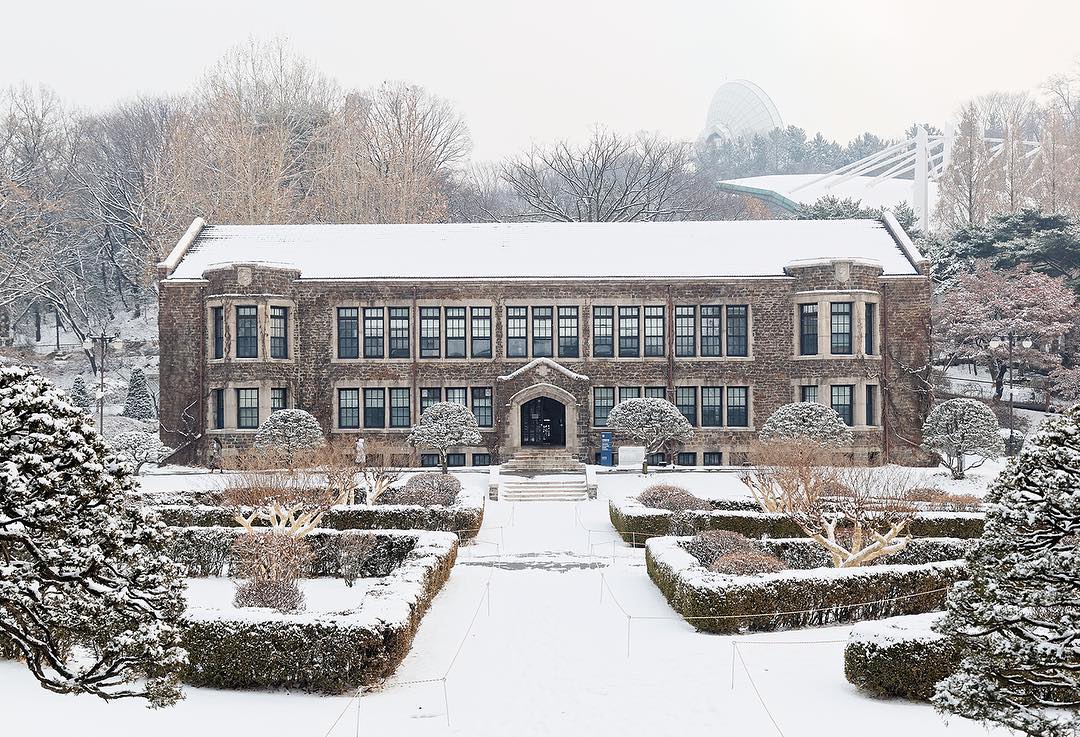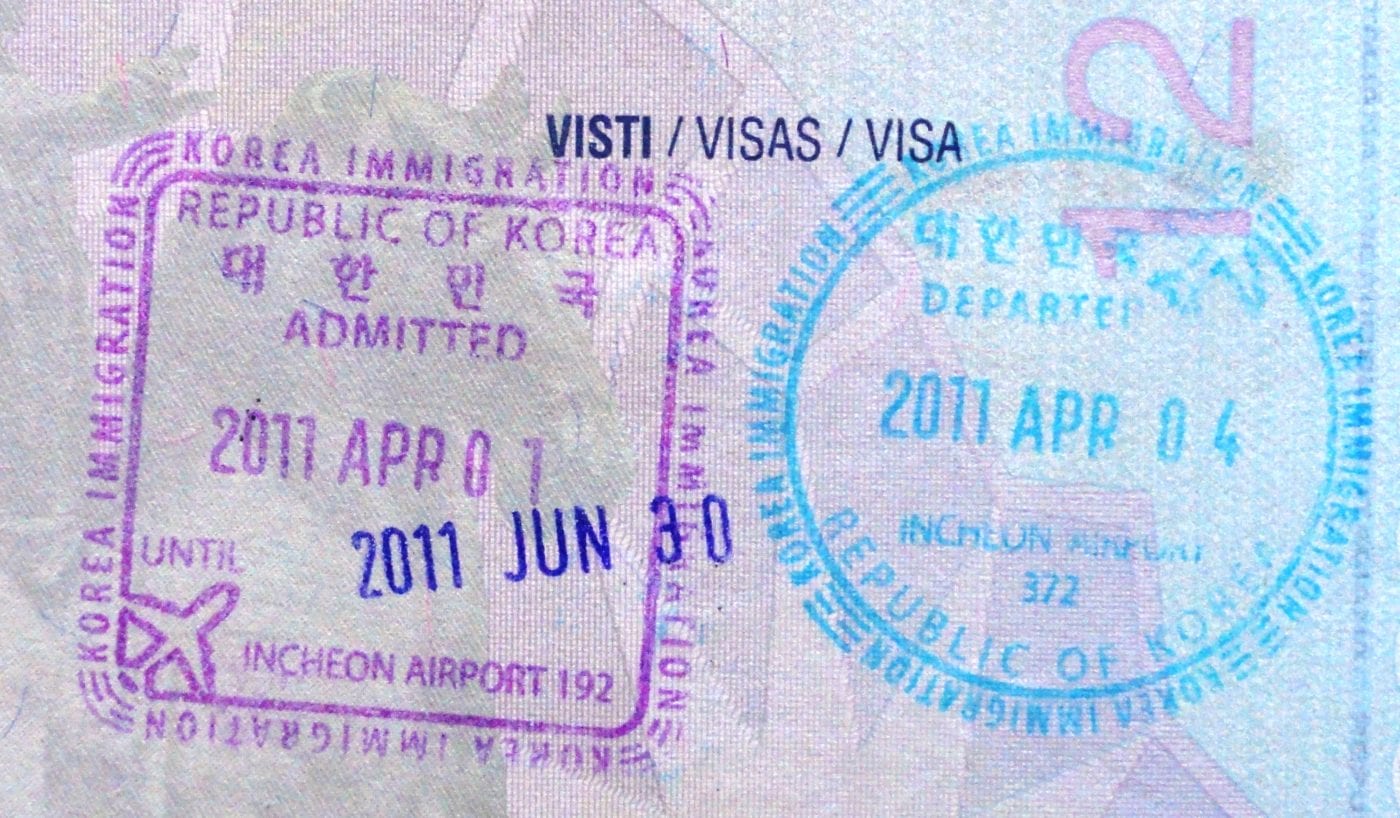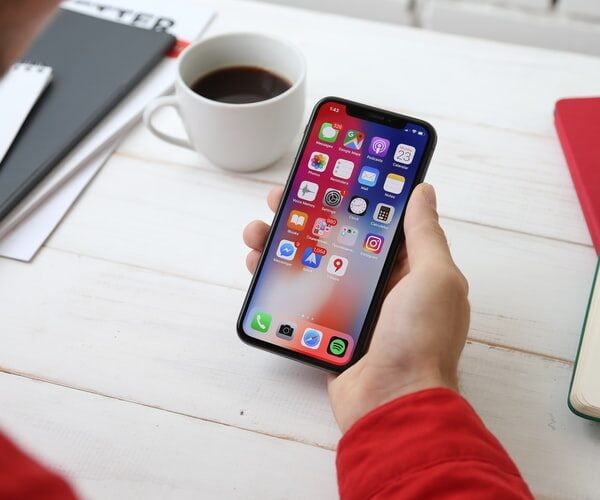Studying abroad can be an exciting but also scary experience. While everyone might tell you the basic things you should expect when preparing to study abroad in a foreign country (language barriers, culture shock, etc.) there are always going to be little nuances that differ from country to country.
That’s why here at 10 Magazine, we’ve created a complete guide to preparing for a study abroad in South Korea.
1. Researching Institutions In South Korea
 Courtesy of Yonsei’s official Instagram account @yonsei_official
Courtesy of Yonsei’s official Instagram account @yonsei_official
First and foremost, it’s important to do your research on the different institutions in South Korea. As Korea is known for its large number of universities, it may be daunting trying to figure out which one will be the best fit for you. Hopefully, this section will help you narrow down your choices.
If you intend on undertaking a semester or year as an undergraduate exchange student, look at your home university’s exchange page to see which programs in Korea are partnered with your home university. If you’d like more specifics about a particular school, check out our comprehensive guide to universities in South Korea.
Finding a graduate program is a different story, however. In recent years, South Korea has started to internationalize its graduate curriculums, offering more classes in English and making its institutions more accessible to non-Koreans. Graduate Schools of International Studies (GSIS) programs offer different focus areas in areas that range from humanities, economics, and international relations. Masters of Business Administration (MBA) programs are also a very popular choice amongst international graduate students in Korea, as many Korean MBA programs are well-known amongst the business world in Asia.
2. Understanding The Korean Tertiary Environment
Depending on where you come from, the Korean tertiary environment can prove to be very different to what you’re used to back home. Classes in Korea are set up to be more teacher-centered, that is to say, that students learn content passively as opposed to through active participation and engagement.
Most classes are held lecture-style, where the professor will go through his lecture slides and students will listen and take notes. It is generally not the norm to challenge or ask questions to the professor whilst they go through their presentation. Most classes, however, allocate a Q&A time after the lecture for students to ask any questions they may have.
Classes in Korea generally are held in longer blocked hours than what you may be used to back home, with 3 hour block classes working as the norm. Though 3 hours may seem daunting, expect a short 10-minute break every hour or so.
One important thing to keep in mind when registering for classes is the weight that attendance plays in calculating your final grade. For most classes, attendance makes up 10% of your final grade – and though it varies school by school, typically students who miss more than 4 classes without a valid excuse will automatically fail their class.
The above notes are general observations about the tertiary environment in Korea, however. Every course and institution has their own rules and you should take the above points as general things to keep in mind, as opposed to hard and fast rules that apply everywhere.
3. Understanding Campus Life And The Buddy System
There’s a big difference in campus life between those who are coming to Korea through an exchange program and those who are coming as a full-time international student for either an undergraduate or graduate program.
If you’re an exchange student, expect to have programs set up by your university that will help you adjust to life in Korea. A buddy mentor program, common in many universities, will pair you up with a Korean student from the school to help you adjust to the university and campus lifestyle during your study abroad. The programs will also facilitate monthly “hangouts,” Korean tutoring, cultural tours, and other events for both Korean and international students to partake in.
For those coming to Korea as a full-time international, as opposed to exchange, student – don’t feel as if you’ll be left out of the loop. Campus life in Korea tends to be heavily revolved around the university grounds; Korean universities have little social hubs around what they call the front gate 전문 (jeon-mun) and back gate 후문 (hu-mun) of campus. Both entrances are filled with apparel shops, beauty stores, small restaurants, and bars with cheap eats fit for a student budget. These places will also be where you’ll find most students drinking on the weekends!
Universities in Korea also have a very bustling and active student-run clubs, from various athletic clubs, clubs within your major, as well as clubs oriented around hobbies such as music, broadcasting, tea, religion, and more. Joining these clubs are a great way to meet local students with similar interests and build friendships during your time studying in Korea.
One aspect that is unique to Korea university life, is the MT (Membership Training). MTs are overnight trips that bring together university students from freshmen to seniors within the same major to promote bonding. MTs usually consist of one or two night stays in pension houses or resorts with mini-games, food, and lots of drinking! MTs are a good way to meet new people, and in particular, build the senior-junior relationship prevalent within Korean society
4. Researching Scholarships in South Korea
With the rise of international university students in recent years, institutions in Korea have stepped up their game by offering more scholarships in various programs.
The different types of scholarships are available to both full-time undergraduate and graduate students, as well as students undertaking Korean language programs at universities. Each university will have various types of scholarships on offer based on your country of origin or academic performance in school.
Check out our guide to scholarships in Korea to get a head start on researching different options offered by universities around Korea. We definitely recommend, however, doing your own research and checking out grants and scholarships outside of this list!
5. Going Through The Visa Process
 CC courtesy of Kristoferb on Wikimedia Commons
CC courtesy of Kristoferb on Wikimedia Commons
Before commencing their study abroad, students will have to prepare to apply for a student visas for their time in Korea. There are two main types of visas to look into: the D-2 Visa (Overseas Study) or D-4 Visa (General Trainee). Be sure to check with both your home and overseas university as to figure out which visa you will be required to apply for before arrival.
The general required documents needed to prepare for the Visa process include:
- Valid passport
- Passport-sized photographs
- Certificate of admission (Official letter from Korea certified by University President)
- Letter of acceptance (From Korean university)
- Application fee
* Additional documents may be required depending on the embassy or consulate.
6. Preparing To Receive Your Alien Registration Card
 Keep in mind that even though these visas will grant you long-term stay in Korea, they will only make the holder eligible for a single entry. Once you arrive you in Korea, you will be required to obtain an Alien Registration Card (ARC), which gives you residence status whilst studying in Korea, and allows you to have more access to various services (phone plans, housing contracts etc.).
Keep in mind that even though these visas will grant you long-term stay in Korea, they will only make the holder eligible for a single entry. Once you arrive you in Korea, you will be required to obtain an Alien Registration Card (ARC), which gives you residence status whilst studying in Korea, and allows you to have more access to various services (phone plans, housing contracts etc.).
The card will also allow you to enter in and out of the country as you please within the duration of your visa. Keep in mind that you are required to apply for the ARC within the first 90 days of your arrival date, so we would recommend that you to apply for the ARC as soon as possible when you arrive in Korea.
While on a student visa, the required documents to prepare for when applying for the ARC include:
- Valid passport
- Passport sized photographs
- Copy of housing contract/ dormitory residence.
- Certificate of enrolment
- Application fee
Here is our complete guide to the alien registration card process. After completing the first step, which is submitting the ARC form, you will then be required to register your fingerprint at one of the immigration offices around Korea. Here is the information to Seoul Immigration Office. After you go through the whole process, it’ll take around 2 weeks for you to receive your ARC.
7. Figuring Out Housing Options
Most universities will provide the option to apply for student dormitories during your studies. Living in the student dormitories has its advantages: you live close to your classes, food is very affordable with student cafeterias, and bustling areas around your campus are just a stone’s throw away. Be sure to check your university’s site regularly for updates on when to apply for student housing.
Although living in the student dorms is convenient at times, it can also be quite restricting: certain electronics are forbidden in the rooms, curfew times can be strict, and there are restrictions on people you can invite into the dormitories. Breaking the rules set by your school may get you penalised, and in some cases, have you removed from the dormitories.
So, if you prefer a bit more freedom during your studies in Korea, renting an apartment is a possibility to consider. Here is our guide to renting an apartment in Korea. Another option is to look for a guesthouse: Borderless House is an agency that describes itself as an “international share house that promotes cultural and language exchange with their tenants.” Their various locations around Seoul provide a 50:50 ratio of Korean tenants and international tenants, and most of the shared apartments are situated close to various universities around the city. There are various rooms for rent, ranging from a private-room to up to a 4-person room. The agency’s staff can communicate in English and various other languages, making this an easy option to consider if you’re not a fan of on-campus housing.
8. Planning Your Finances, Budget, and Banking
Although receiving a scholarship may be a good way to receive financial aid while studying abroad, you should also be prepared financially in other ways prior to coming to studying in South Korea. Be sure to plan out your finances to ensure that you will have enough money for rent, groceries, entertainment and so forth during your studies! Keep in mind that unplanned things may happen during your stay, so always make sure to have a bit of extra money set aside for emergencies.
Opening a bank account in Korea is relatively simple if there is an affiliated or nominated bank partnered with your university – the process suddenly becomes much easier than it would be if you were to apply on your own. Be sure to check your student help center for more information about a partnered bank.
However, if you want to avoid opening a bank account in Korea, and your studies will only be for a short period of time, consider acquiring a debit/credit card from your home bank that has a low overseas transaction fee before coming to Korea. Global ATMS are also available in various locations around Korea, allowing those with overseas cards to take out South Korean currency for an overseas transaction fee from the ATM itself as well as possibly from your own bank at home. Before your travels, however, be sure to call your home bank in advance to inform them of your overseas plans – or else, you might find that your account has been put on freeze for “suspicious activity.”
9. Learning Korean
 Learning the basic Korean alphabet (hangul) before arriving makes a huge difference when adjusting to life in Korea. Apart from restaurants located in more touristy areas, most menus are quite simple and sometimes are devoid of images, so the ability to read hangul can be extremely helpful. University cafeterias usually operate on a self-order machine without any images, so unless you’re good with eating whatever, you might want to pick up a bit of Korean.
Learning the basic Korean alphabet (hangul) before arriving makes a huge difference when adjusting to life in Korea. Apart from restaurants located in more touristy areas, most menus are quite simple and sometimes are devoid of images, so the ability to read hangul can be extremely helpful. University cafeterias usually operate on a self-order machine without any images, so unless you’re good with eating whatever, you might want to pick up a bit of Korean.
There are some Korean language learning apps you can download to help you practice hangul, as well as learn some basic greetings and phrases before coming to Korea for your studies. Korean language classes and exchange groups are also widely available around the country for those who want to go the extra mile.
10. Figuring Out Phone Plans In South Korea
 CC Image Courtesy of Pexel
CC Image Courtesy of Pexel
Figuring out a phone plan during your time abroad can often be a headache. Here are a couple essential things to know, however: The main phone carrier companies in South Korea are SK Telecom, KT (Olleh), and LG U+. You can easily buy a prepaid SIM card to use when you land in Korea by pre-ordering one beforehand or buy one at Incheon airport upon your arrival. Prepaid SIM cards are a great option for those staying for a short time in Korea. Another easy option for those who want to avoid some hassle is paying for a prepaid SIM card through The Arrival Store, which is a service that will have a Korean cell phone or SIM card ready and waiting for you when you arrive.
Those staying for more than 6 months, however, may want to definitely consider getting a monthly phone plan. In order to do this, however, you’ll need a Korean Bank Account and ARC. Here is our complete phone guide to SIM cards and phone plans in South Korea.
Hopefully, this article was helpful for those looking to do a study abroad in Korea. Though preparing everything can be a hassle, we hope that your time here will make it all worth it. If we missed anything, please feel free to shoot us an email!






 CC courtesy of
CC courtesy of 

